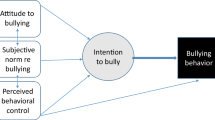Conclusion
An effort has been made to establish the plausibility of the hypothesis that our present organizational theory (and organizations based upon it) is obsolete to the current objective of indidualization in the field of human services. A few alternatives have been advanced which might provide deorganized, yet humanized, assistance.
There can be no question as to the need for stopping what must be an endlessly frustrating experience for clients, who seem to be shuffled from program to program, each of which is only partly suitable to the individual's needs. The challenge to professionals in the human services appears to be either to develop a theory of organization which is capable of individualizing, or to deorganize.
Similar content being viewed by others
Bibliography
New York State Department of Mental Hygiene, Division of Mental Retardation and Children's Services, Memorandum No. 72-48, dated December 8, 1972. Subject: “Improvement of Care and Prevention of Resident Abuse”. Page 1.
Decker, Harold A., M.D., “A System for Planning and Achieving Comprehensive Health Care in Residential Institutions for the Mentally Retarded”, a Monograph originally printed by the Department of Health Development, School of Public Health, University of Michigan. Reprinted by Department of Pediatrics, University of Arkansas Medical Center, Little Rock, Arkansas. Page 9.
Bendix, Rinehard,Max Weber: An Intellectual Portrait, Doubleday, Inc., Garden City, New York 1962, Page 427.
Weber, Max,From Max Weber: Essays in Sociology, Trans. ed., and Introduction by H.H. Gerth and C. Wright Mills, New York: Oxford University Press,1946. Page 198.
Downs, Robert B.,Books That Changed America, that section dealing with the contributions of Frederick W. Taylor. New York: The New American Library, Page 196–206.
Gulick, Luther and Urwick, L. (eds),Papers on the Science of Administration, New York: Institute of Public Administration, Columbia University, 1937.
Mayo, Elton,The Human Problems of an Industrial Civilization New York: Viking Press, 1960.
Simon, Herbert A.,Administrative Behavior: A Study of Decision-Making Processes in Administrative Organizations, New York: The Free Press, 1957.
Argyris, Chris,Integrating the Individual and the Organization, New York: Wiley, 1964. See also: Argyris, Chris,Personality and Organization, The Conflict Between System and the Individual, New York: Harper 1957.
Thompson, Victor,Modern Organization, New York, Knopf, 1961.
Homans, George C.,The Human Group, New York: Harcourt, Brace and Company, 1950, Pages 453.
State of New York Executive Budget for the Fiscal Year April 1, 1973 to March 31, 1974. Submitted by Governor Nelson A. Rockefeller. The figures were calculated from comparing institution population to appropriations. Page 292.
Tizard, J., “Residential Services Within the Service Continum”Changing Patterns in Residential Services for the Mentally Retarded, by President's Committee on Mental Retardation, pages 197–210, Washington, D.C., United States Government Printing Office, 1969.
Kushlick, A.A.,A Community Service for the Mentally Subnormal”, Social Psychiatry 1966. Pages 73–82.
Additional information
Mr. Merges received his Bachelor's Degree in English from Siena College in 1961, his Master's Degree in Political Science [Public Administration] from the State University of New York at Albany, in 1969, and is preparing his dissertation for the degree of Doctor of Public Administration at the State University in Albany. He has been in the mental health field since 1965, working with the New York State Department of Mental Hygiene. His current position is that of Director of Wassaic State School, at Wassaic, New York.
Rights and permissions
About this article
Cite this article
Merges, R.C. Are concepts of organizational theory and concepts of individualized treatment contradictory?. Journal of Mental Health Administration 3, 15–24 (1974). https://doi.org/10.1007/BF02828332
Issue Date:
DOI: https://doi.org/10.1007/BF02828332




